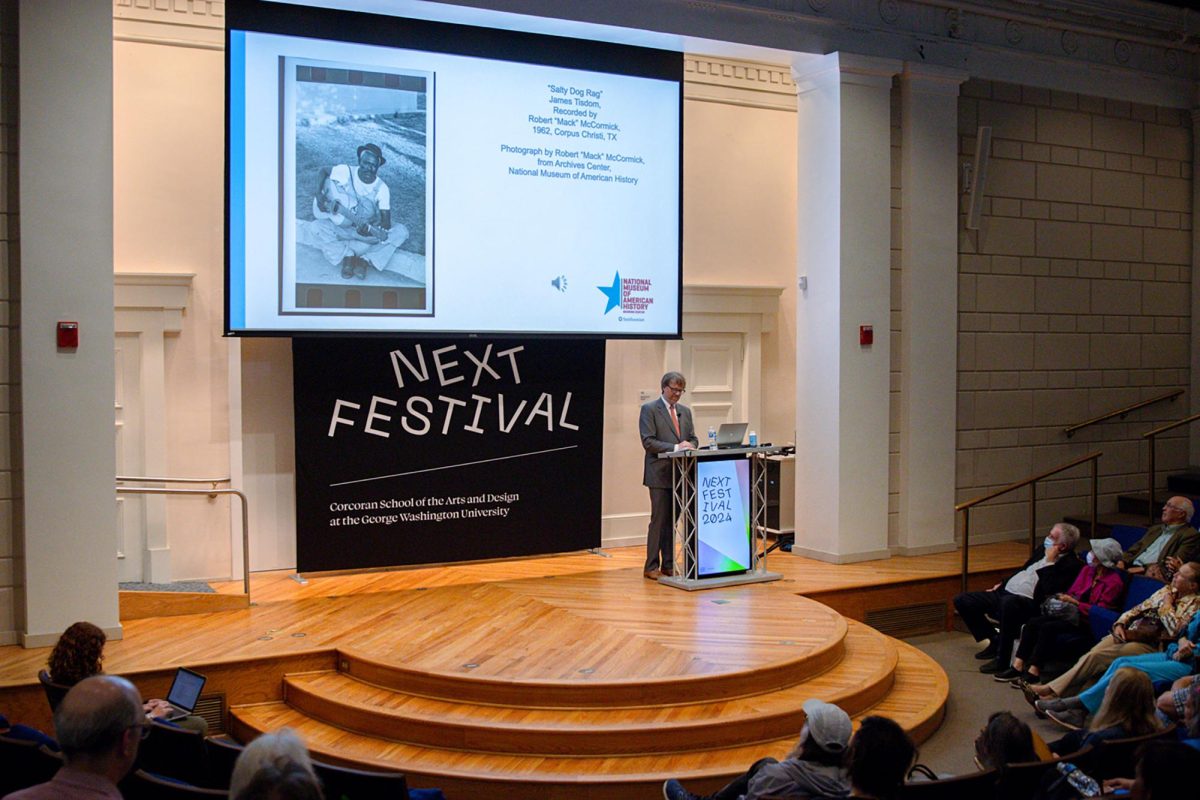Philosopher and political activist Cornel West reflected on the work of Charles Mills, a philosopher who died last month, as part of a discussion on racial elements within Western philosophies.
West discussed Mills’ work to address the inclusion of race and white supremacy in liberalism, a political and social philosophy promoting democracy and civil liberties. Xolela Mangcu, the interim director of the Africana Studies Program, and Vanessa Wills, an assistant professor of philosophy, moderated the event, which was hosted by the Columbian College of Arts and Sciences.
West said Mills’ expertise on liberalism gave insight into whether the philosophy could meet the challenges of today’s time. He said people should preserve the best features of liberalism, like the protection of rights and liberties, while being mindful of its flaws, like its tendency to allow predatory capitalism, patriarchy and homophobia.
“I think anytime you talk about liberalism, you always want to historicize, contextualize and pluralize it,” West said.
West said Mills focused on how a personal ideology can feature multiple elements of pre-existing ideologies and shift based on factors influencing their life. He said people must obtain several insights and combine them with their own experiences against oppression, a fact he considered in his own ideological journey.
He said people on their own ideological journey must go to various institutions to formulate and support their own beliefs. He said these institutions must be “countervailing forces” against hatred, greed and envy.
“You go to voices and bring the insights of those voices together, embodied in your own praxis, always tied to some organizing, some mobilizing, some movement, some motion,” he said.
West said he has tried looking for sources of inspiration or theories that can sustain his own philosophies, even if those traditions or theories lack perspectives on social issues like racism. He said while he agrees with some of Karl Marx’s views, like the critique of predatory capitalism, he can’t ignore how he overlooks the lack of urgency against white supremacy in his works.
He said he references the works of philosopher John Dewey and civil rights activist Angela Davis as additional sources when he finds faults in other philosophies, like Marxism, to cement his ideological legacy.
“When I look at Marxism, look in particular for white supremacy, I see a little gesture here and there but not a deep understanding of it,” he said.
West said Nelson Mandela, the former president of South Africa who worked to eliminate apartheid, epitomized how a figure could possess an ideological history ranging between communism and neoliberalism. He said those who aspire to live like Mandela should recognize that he was still a human being capable of various complicated beliefs.
“We want to hear their voices,” he said. “Don’t just be an echo. Don’t just extend out your silo. We want to hear your voice, but your voice has to be grounded in great other voices.”
West said the most critical step for young Black academics attempting to enter the political field is to stay true to their voice while recognizing how their life has been impacted by those around them. He said students should not envision themselves only through the lens of others.
“When you try to be true to yourself, you see what’s deposited in society, that your mom and your daddy and your teachers and your coaches and your friends have shaped who you are,” West said.
He said those interested in the world of politics or academia must be aware of the distinction between greatness and worldly success. West said people should relay love and compassion to those who are suffering and stay true to themselves to achieve greatness, while worldly success revolves around happiness from materialistic possessions.
He said he agreed with philosopher William James’ idea that intellectuals will always gain a vision of greatness, but greatness is not the same idea as success.
“You can use success to be great if you have it, but you don’t use success somehow to downplay what your calling actually is,” West said.







